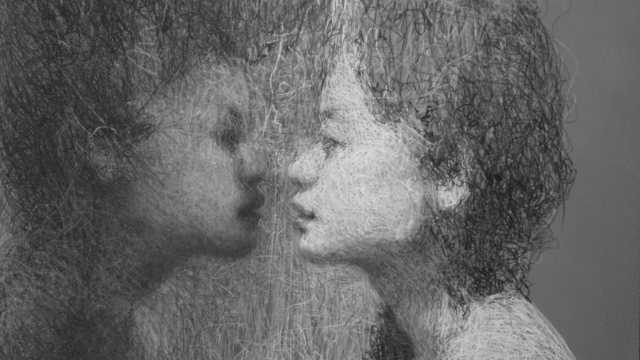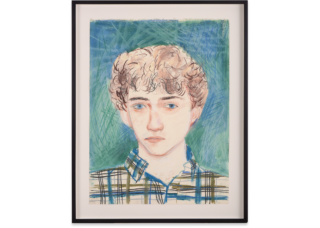
When the younger one of my children was in third grade, I received an invitation from the teacher to participate in an oral history project. What was your life like when you were in third grade — that was the question the students would ask me.
I thought about my third grade in Beijing, a year I never willingly brought into focus in my recollection. A few weeks into the school year, a new girl transferred to our class. She was docile-looking, with pale skin and a thin braid. She carried herself with an air different than most children our age. I did not know what it was until I overheard the janitor, a late middle-aged woman, comment to our teacher that the new girl looked like a handmaiden about to be sold to become some old man’s concubine. The janitor’s tone, more than her words, made me study the girl. She never smiled, and rarely initiated a conversation or a game with anyone. Though I noticed that sometimes she would stare at a classmate until her attention was acknowledged, and then she would look away, one corner of her mouth curling upward, one corner down. It was the first time I had seen bitter contempt for the world in a child’s face. I was transfixed.
Soon the air turned chilly, and the new girl’s hands became cracked and swollen. Many children from my childhood had chilblains, but the new girl had the worst chilblains I’d ever seen. When it was even remotely cold, she would keep her hands in her pockets all the time.
Around the same time my classmates started to miss things: brightly colored plastic rulers, fragrant rubber erasers with pictures of bunnies printed on them, mechanical pencils imported from Japan, and then, a one-yuan bill taken from a boy’s pencil box. The last theft was a true crime (my parents’ combined monthly income was seventy-six yuan at the time). The class was propelled into a frenzy of detective work. A friend told me that she suspected a boy sitting next to her was the felon. He had been eating chocolate in secret for three consecutive days: he did not come from a family that could possibly afford chocolates. Another friend thought a girl had a rubber eraser that looked like her lost one; and, my friend said, did you notice her new hairband? For days the teacher interviewed the class, reconstructing everyone’s movements on the day the money was stolen, between the second and the third period. The girl who recently transferred to our class soon surfaced as a prime suspect. The teacher paid a visit to her home and found in her room a box in which the stolen goods were hidden. The money, the girl confessed, had been spent. The parents were not surprised.
Had the story ended there, it would have been an unfortunate tale of a young girl with kleptomania (though the concept was not present in our world then), and I would have forgotten it. But after the excitement of catching a thief came the even more necessary excitement of watching the thief receive the right punishment. For a misdemeanor, the offender would sit in a lone chair next to the teacher’s desk for a day, or write a self-denunciation and read it aloud in front of the class. The girl’s crime was beyond ordinary. The teacher announced a punishment called “a transparency game.” No one was allowed to talk to the girl or play with her in school or after school; the teacher herself would not address her, grade her homework, or act in any way to acknowledge her existence. Any student who dared to break the rule of the game, the teacher warned, would be a transparent person, too.
I decided to befriend the girl. I told myself that I did not like how she was treated. Perhaps, I now think, I found it irresistible to study her closely. I then became transparent.
I don’t remember having suffered at the beginning. At least I had one friend, whose transparency I shared. There were plenty of games two people could play. We threw a beanbag back and forth at recess; she always used one hand and kept the other hand in her pocket. We wrapped a few coins in an old handkerchief and kicked it like a jianzi, though we never found the right feathers to adorn it. My other — now former — friends resented that I had preferred a thief to them. That did not make me suffer, either. I must have had a bout of delusion of grandeur. I believed that the teacher was wrong, and I would prove it to her.
This went on for a few weeks. One day the teacher called my friend and me to her office. She told the girl that she would stop being a transparent person if she agreed to stop being my friend; even better, she would be, as a reformed student, given a status as the teacher’s special helper to clean the blackboard.
My friend accepted the proposal without hesitation, and I was left in my singular transparency. She now looked past me as though I did not exist. Before the end of every class period, she would walk up to the blackboard, a chalk eraser in each hand; she would clean the board and then clap the two erasers against each other, white dust rising around her. She never hid her hands again, even though she continued to have the worst chilblains we had seen in our childhood.
I was made a fool, and no classmate would be foolish enough to get themselves infected by my transparency. My third grade, from that point on, became a less defined time.
I did not tell this story to the third graders who had invited me for their oral history project. Instead, I talked about the lantern festival in third grade, where my paper lantern caught fire. It was cowardice that made me tell them a fabricated story, but how else could I have contributed to their education? Had I chosen to tell them a true story, I would have inflicted cruelty, too.


